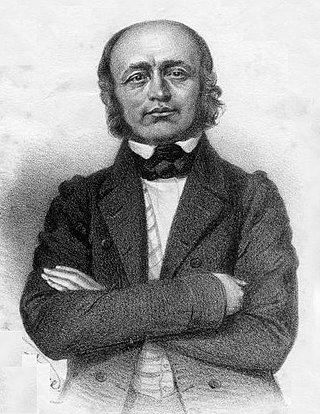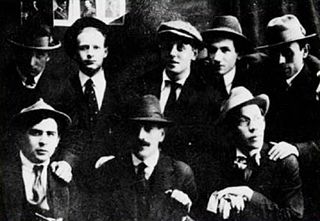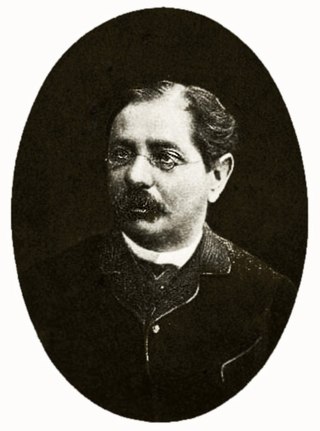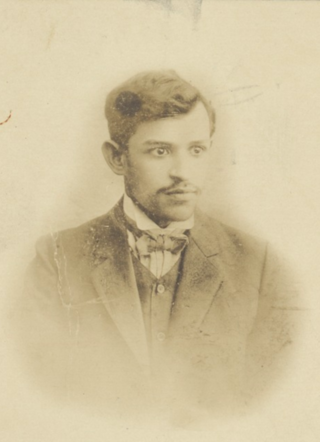
Yiddish, historically Judeo-German, is a West Germanic language historically spoken by Ashkenazi Jews. It originated in 9th-century Central Europe, and provided the nascent Ashkenazi community with a vernacular based on High German fused with many elements taken from Hebrew and to some extent Aramaic. Most varieties of Yiddish include elements of Slavic languages and the vocabulary contains traces of Romance languages. Yiddish has traditionally been written using the Hebrew alphabet.

The Pale of Settlement was a western region of the Russian Empire with varying borders that existed from 1791 to 1917 in which permanent residency by Jews was allowed and beyond which Jewish residency, permanent or temporary, was mostly forbidden. Most Jews were still excluded from residency in a number of cities within the Pale as well. A few Jews were allowed to live outside the area, including those with university education, the ennobled, members of the most affluent of the merchant guilds and particular artisans, some military personnel and some services associated with them, including their families, and sometimes their servants. Pale is an archaic term meaning an enclosed area.

Yiddishism is a cultural and linguistic movement which began among Jews in Eastern Europe during the latter part of the 19th century. Some of the leading founders of this movement were Mendele Moykher-Sforim (1836–1917), I. L. Peretz (1852–1915), and Sholem Aleichem (1859–1916). The Yiddishist movement gained popularity alongside the growth of the Jewish Labor Bund and other Jewish political movements, particularly in the Russian Empire and United States. The movement also fluctuated throughout the 20th and 21st century because of the revival of the Hebrew language and the negative associations with the Yiddish language.

Jewish literature includes works written by Jews on Jewish themes, literary works written in Jewish languages on various themes, and literary works in any language written by Jewish writers. Ancient Jewish literature includes Biblical literature and rabbinic literature. Medieval Jewish literature includes not only rabbinic literature but also ethical literature, philosophical literature, mystical literature, various other forms of prose including history and fiction, and various forms of poetry of both religious and secular varieties. The production of Jewish literature has flowered with the modern emergence of secular Jewish culture. Modern Jewish literature has included Yiddish literature, Judeo-Tat literature, Ladino literature, Hebrew literature, and Jewish American literature.

Isaac Erter was a Polish-Jewish satirist and poet of the Galician Haskalah. His Hebrew prose has been compared to that of writers Heinrich Heine and Ludwig Börne.
Dovid Hofshteyn, also transliterated as David Hofstein, was a Yiddish poet. He was one of the 13 Jewish intellectuals executed on the Night of the Murdered Poets.
The accusation that Joseph Stalin was antisemitic is much discussed by historians. Although part of a movement that included Jews and ostensibly rejected antisemitism, he privately displayed a contemptuous attitude toward Jews on various occasions that were witnessed by his contemporaries, and are documented by historical sources. Stalin argued that the Jews possessed a national character but were not a nation and were thus unassimilable. He argued that Jewish nationalism, particularly Zionism, was hostile to socialism. In 1939, he reversed communist policy and began a cooperation with Nazi Germany that included the removal of high-profile Jews from the Kremlin. As dictator of the Soviet Union, he promoted repressive policies that conspicuously impacted Jews shortly after World War II, especially during the anti-cosmopolitan campaign. At the time of his death, Stalin was planning an even larger campaign against Jews, which included the deportation of all Jews within the Soviet Union to Northern Kazakhstan. According to his successor Nikita Khrushchev, Stalin was fomenting the doctors' plot as a pretext for further anti-Jewish repressions.
Meyer Waxman was an Imperial Russian-born American rabbi, historian, and scholar. He best known for his six-volume work A History of Jewish Literature, published in 1960.

Ruth Wisse is a Canadian academic. She is the Martin Peretz Professor of Yiddish Literature and Professor of Comparative Literature at Harvard University emerita. Wisse is a scholar of Yiddish literature and of Jewish history and culture.
Jacob Glatstein was a Polish-born American poet and literary critic who wrote in the Yiddish language. His name is also spelled Yankev Glatshteyn or Jacob Glatshteyn.

Rachel Bernstein Wischnitzer, was a Russian-born architect and art historian.

Michael Dorfman is a writer, essayist, journalist, human rights activist and activist of the Yiddish culture revivalist movement.

Di Yunge was the first major literary movement of Yiddish poetry in America. During the early 20th century, their work emphasized romanticism, individualism, subjectivism, and free and indirect expression.

Rokhl Auerbakh was an Israeli writer, essayist, historian, Holocaust scholar, and Holocaust survivor. She wrote prolifically in both Polish and Yiddish, focusing on prewar Jewish cultural life and postwar Holocaust documentation and witness testimonies. She was one of the three surviving members of the covert Oyneg Shabes group led by Emanuel Ringelblum that chronicled daily life in the Warsaw Ghetto, and she initiated the excavation of the group's buried manuscripts after the war. In Israel, she directed the Department for the Collection of Witness Testimony at Yad Vashem from 1954 to 1968.

Lev Levanda was a Russian author, belletrist, and publicist. His sketches were often published under the pen name Ladnev.

Eli Schechtman was a Yiddish writer. He defined the purpose of his work as follows: "My mission in Jewish literature was and still is ... to show to those who negate the power of the Galut, how mighty – spiritually and physically – were the generations who grew up in that Galut, even in the most godforsaken places."

Israel Wachser was a Russian writer of Yiddish and Hebrew short stories and children's literature.
Mordecai Suchostaver was a Galician adherent of the Haskalah, and teacher of philosophy at the rabbinical seminary of Zhitomir. He was a student of Nachman Krochmal and Menachem Mendel Levin.

The Cold Synagogue or Školišča Synagogue was a synagogue located near the intersection of Vyalikaja Hramadzianskaya and Pravaya Naberezhnaya Streets, in Mogilev, Belarus.

Menahem Mann Ben Solomon ha-Levi Amelander was a Dutch-Jewish author and historian of the 18th century. He died before 1767.















